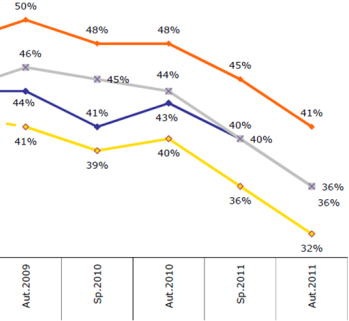RTL news reported yesterday (link in Dutch) that the PVV, the Freedom Party led by Geert Wilders, have received 40 000 complains on their controversial website asking people to report Central and Eastern European citizens causing ‘problems’ in the Netherlands. More than half of these were, according to the news item of 13 December about ‘drunkenness, noise and parking problems’. No detailed breakdown of issues or problems or even an overview of the 40 000 (complaints/messages? filled forms?wesbite hits?) has been made available yet and still a number of Dutch media dedicated quite some attention to the figure mentioned by the PVV. 40 000 sounds, after all, very impressive, even of a percentage of the messages left on the website may have been from people who had a positive story or complained about the website itself. More importantly, the journalists asking questions about the ‘Central and Eastern European problem’ seemed unaware of a report presented this very same week, on 12 December, of a broad representative study by the Polish Institute of Public Affairs showing that the majority of Dutch people have a positive or neutral impression of Polish people working here.
This provides some food for thought. First, it appears difficult for the media to distinguish representative, science based results from any other numbers that get used and abused in public debates. Secondly, there is clearly a selection bias on the PVV website, which could be understood better if we could see a breakdown of the type of issues and complaints. This was also stressed by the Polish embassy, whose spokesperson rightly remarked that the PVV reported numbers have no scientific value whatsoever. This latter comment reached us through the SPITS newspaper (link in Dutch here) that managed, in its turn, to confuse the authors of the report on Polish perceptions in the Netherlands – the research was done by the Polish Institute for Public Affairs and GfK, but not Leiden university ( we co-hosted a presentation of the results in our Campus in the Hague). In the end, the only conclusion that can be drawn so far from the coverage of the perceptions of Poles in the Netherlands report as opposed to the PVV complaint numbers announcement appears to be that some journalists do not pay much attention not only to science, but also to the basic facts.
For anyone who is interested in the actual data related to the perceptions of Poles in the Netherlands, a link to a summary of the findings and figures of the study can be found here. The full report is yet to be finalized and we look forward to examining the complete results.


